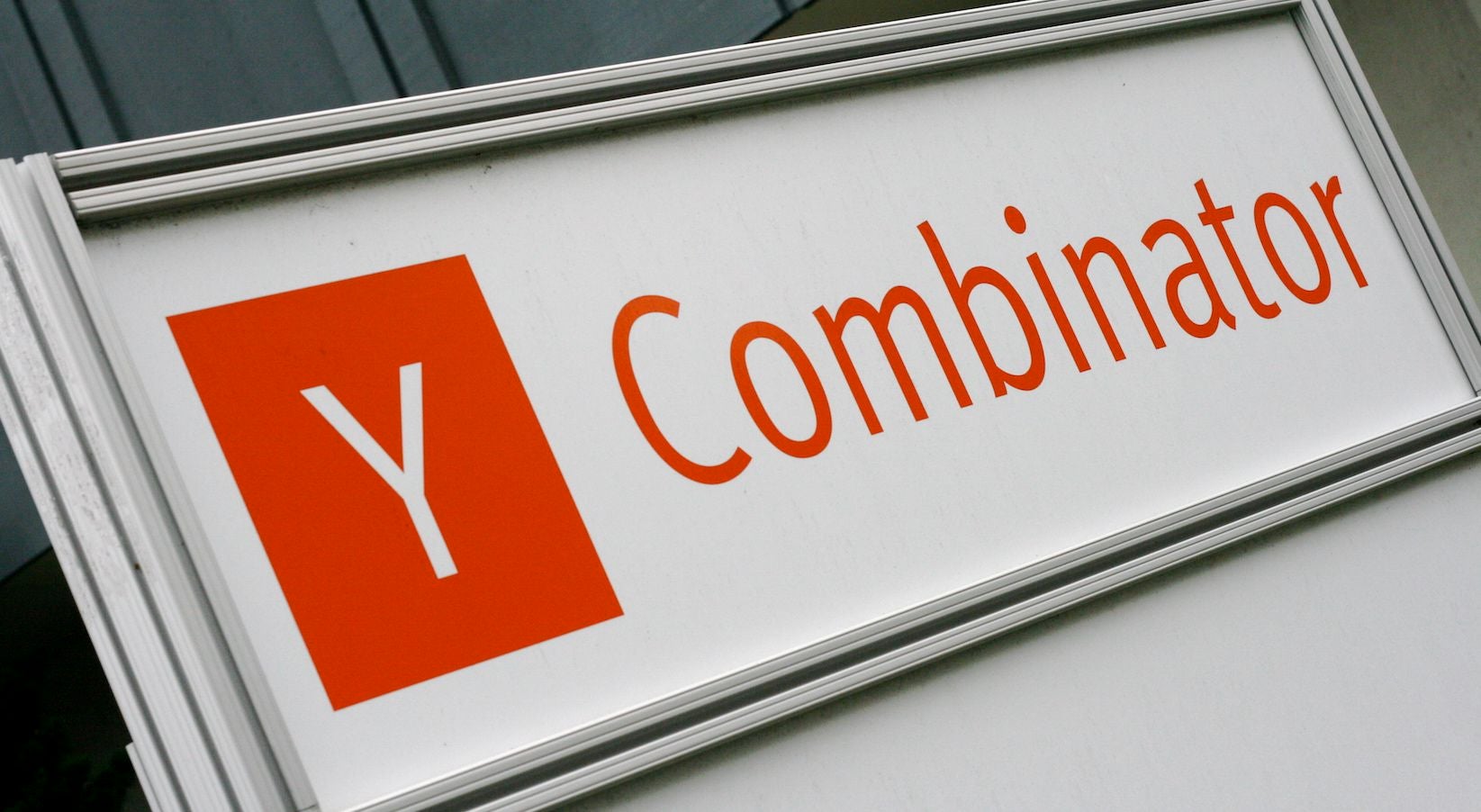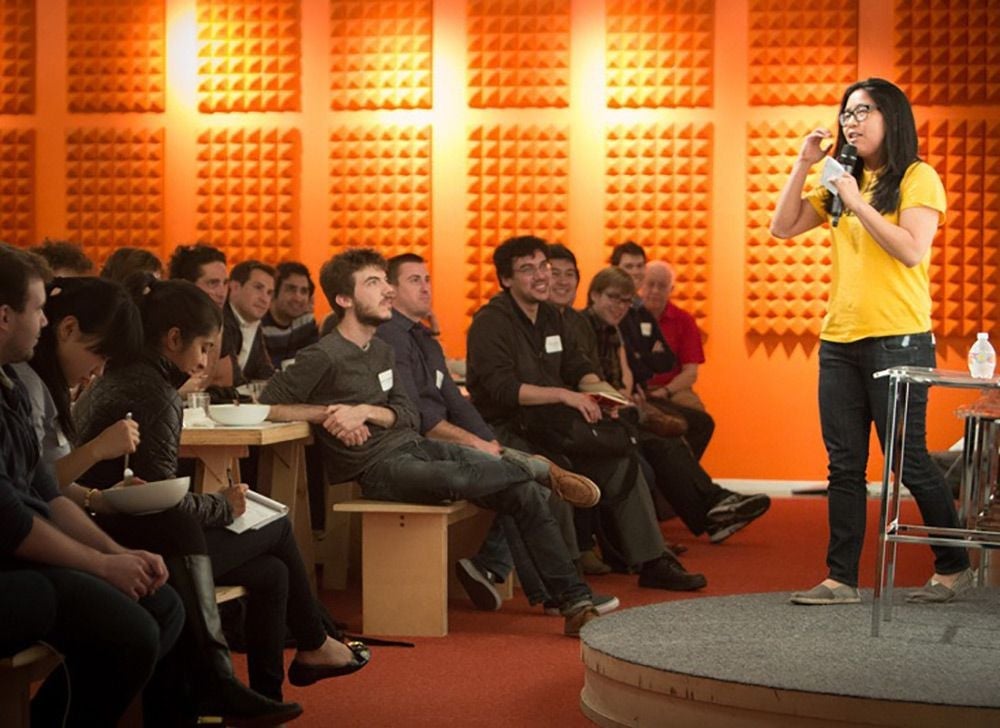Here are our favorite startups from the Harvard of tech accelerators
Y Combinator is an accelerator that hosts what are widely considered the most coveted tech startups in the world, and this most recent class is no different. Even with a record 114 startups in its current class, president Sam Altman said they represented “less than 2% of the companies that applied.” Only about four or five would go on to become “big hits,” he added.


Y Combinator is an accelerator that hosts what are widely considered the most coveted tech startups in the world, and this most recent class is no different. Even with a record 114 startups in its current class, president Sam Altman said they represented “less than 2% of the companies that applied.” Only about four or five would go on to become “big hits,” he added.

For every Airbnb, Dropbox, Stripe, or Twitch—all of which are Y Combinator alums in the billion-dollar-startup club—there are hundreds of others that fade into oblivion. It’s hard to say which companies will go on to become unicorns (if we had this skill set, we’d be in a much more lucrative industry), but based on their short two-and-a-half-minute presentations at Y Combinator’s demo days this week, we picked six startups that left a lasting impression on us.
Standard Cyborg
Walking on stage with a $23,000 prosthetic leg, Standard Cyborg founder and CEO Jeff Huber talked about some of the challenges amputees face. Prosthetics are typically very expensive because they’re “designed completely by hand by someone pouring and carving plaster,” and the companies that make them usually discourage wearers from using them in wet environments, like the shower or beach, to avoid rust buildup and the suspension systems jamming. For Huber, whose left leg was amputated at infancy, this meant the mundane task of taking a shower became a daily balancing act. “I’ve definitely fallen lots of times,” he tells Quartz, noting many amputees often rely on a special shower stool when bathing.
With about 1.8 million leg amputees in the US, he believes Standard Cyborg, which creates waterproof and durable prosthetics using 3D printing, can better serve this market. Its first product, the $800 Water Leg, is made of carbon fiber on the outside and plastic on the inside, and the company plans to release a version for above-the-knee amputees later this year.
Atomwise
Bringing a drug to market is a long, laborious, and expensive process—on average taking about 15 years and $2 billion in research. But Atomwise, which uses artificial intelligence to predict safe and effective molecules for drugs, can discover new medicines using far fewer resources and find new uses for existing drugs.
As a showcase of the company’s capabilities, CEO Abraham Heifets announced on stage that Atomwise recently identified two existing drugs shown to reduce the spread of infection for two Ebola strains—a process that took a week and less than $1,000 in computing costs. “We can complete a project of this caliber every week,” said Heifets. But he’s careful to note the long road ahead for this discovery, including testing the drugs on more strains of the virus, testing its effectiveness on different organs and populations, and then conducting trials in rats, primates, and ultimately humans. With a client list that includes Merck, Johnson & Johnson, and the Karolinska Institute—the body that awards the Nobel Prize in physiology or medicine—it’s clear the industry’s eager to speed up the process to find new treatments.
Mashgin
Self-checkout lanes are supposed to save stores money, but they’re largely a nuisance to consumers. Anti-theft measures make these systems extremely clumsy to use—and ironically enough, debugging them often require the assistance of a store employee. Mashgin believes it can simplify and speed up the process using sophisticated machine-learning and computer-vision algorithms.
The startup quickly got the attention of investors when it announced a large unnamed client representing $50 million of revenue per month. Mashgin says its technology bypasses the need to scan individual barcodes, reducing checkout time to seconds. That means one could theoretically place a cafeteria tray, for example, inside its large, brightly lit box, and the system will be able to detect and ring up the items in mere moments. Mashgin’s network of check-out machines is supposed to get smarter as it learns and recognizes more objects—to the point where it can not only differentiate between an orange and tangerine, but whether an orange is organic or not.
Pigeonly
One of the most memorable pitches from this class came from Frederick Hutson, CEO and cofounder of Pigeonly, a company that makes it easy for people to communicate with inmates. Having served five years for distributing marijuana, Hutson began his presentation with a slide bearing 42501-08—his prison number. (His introduction resonated with the audience so much that they interrupted in applause.)
What makes Pigeonly so refreshing is that it serves a very overlooked and underserved market—prisoners and their family and friends—instantly making it more compelling than yet-another on-demand laundry, veterinarian, or marijuana service (all real pitches). Pigeonly is trying to serve a real need, and there’s major market potential too. The US has one of the highest incarceration rates in the world, and existing tools for prison communication are cumbersome to use.
Bagaveev
“The space race is back,” declared Bagaveev CEO Nadir Bgaveyev. His monotone, pitch-perfect delivery in a thick Russian accent was enough to get the audience cracking up.

Arguably the most ambitious startup of the batch, Bagaveev aims to build a three-ton rocket to transport nano-satellites to low-earth orbit. For nano-satellites to get into space, they have to piggyback off the payloads of large rockets, but the process is long and expensive. There’s currently a two-year waiting list with a backlog of 800 nano-satellites, says Bgaveyev, and the cost of transportation usually comes to $100,000 a kilogram. Bagaveev wants its rocket, which would be powered with 3D-printed engines and is a hundredth the size of a large rocket, to launch 50 nano-satellites weighing 10 to 12 kilograms each year.
DemocracyOS
DemocracyOS summarizes itself with a very bold tagline: “We are reinventing democracy for the 21st century.” An open-source platform, DemocracyOS aims to make government information accessible to all citizens of the world, hosting government records and giving people a place to learn about and discuss political topics.
Taking its vision a step further, the Buenos Aires-based startup helped create a new political party, Partido de la Red (The Net Party), in its hometown in 2013. Representatives elected by the party agree to cast votes in alignment with the interests of DemocracyOS users. The platform relies on the Blockchain, a public ledger that’s largely used for recording bitcoin transactions, to increase transparency and accountability without exposing users’ identities. In an October 2013 election, the Net Party received about 1% of votes, and it’s hoping to elect its first representative later this year.